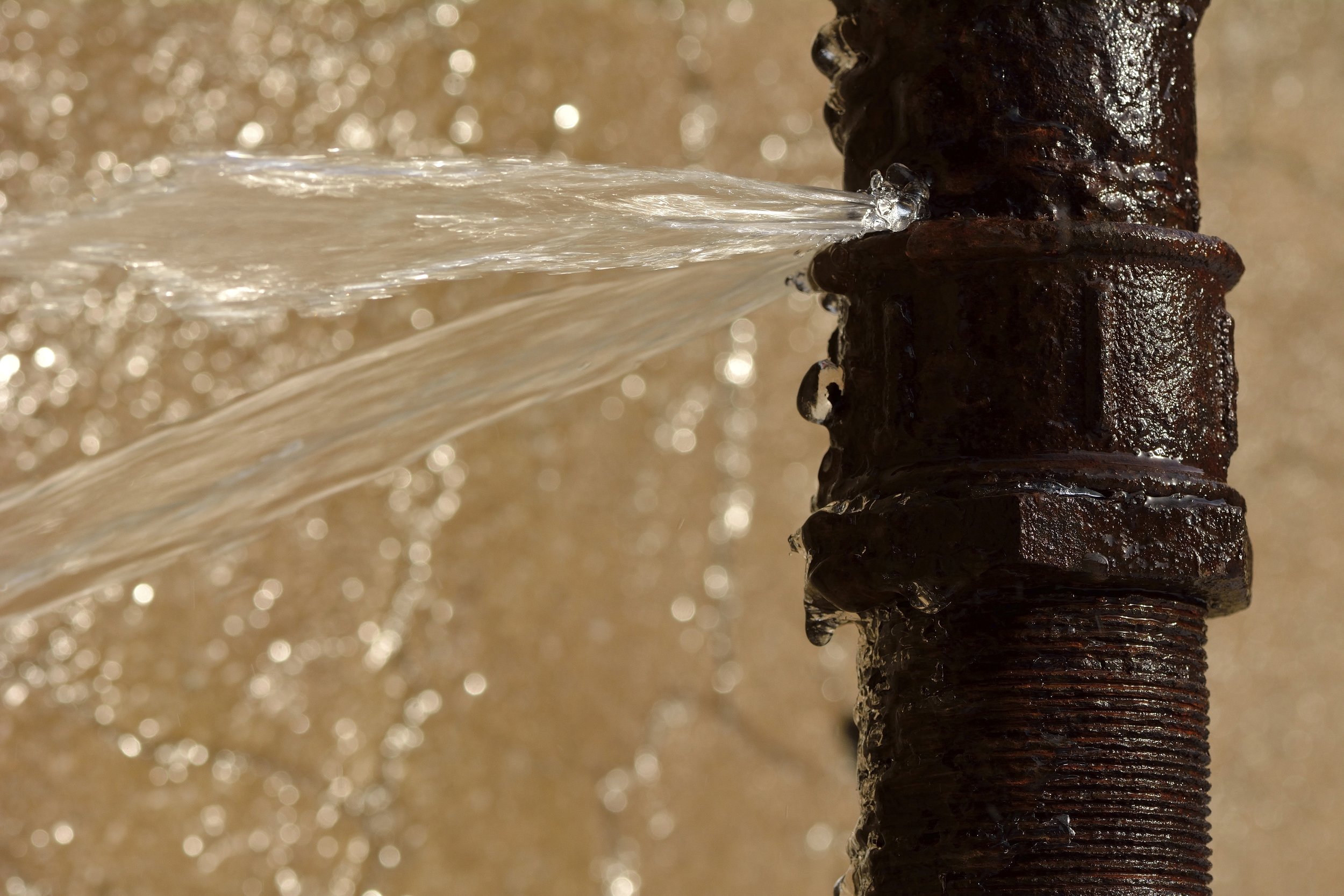
PLUMBING
LEAKS
In our experience, plumbing leaks are the most highly contested claims throughout Florida. It's imperative that your claim be properly presented to your insurance company right from the start if you want your claim to go smoothly and be paid fairly.
Plumbing fails for a variety of reasons...
As properties age, the likelihood of a plumbing failure increases. Whether an old material, like cast iron, ages and rusts, seals fail, or more modern materials, like PVC get brittle over time, plumbing failures happen, and you generally don't see it coming, because plumbing is typically hidden within walls, behind vanities or fixtures, in a crawl space, or even under the slab of your home. Some of the most costly repairs occur when cast iron waste lines that carry waste water away from a home fail beneath a slab....
New construction and newer homes are also highly susceptible to plumbing leaks. As construction continues to boom, and contractors see more competition and smaller profit margins, it has become a reality that cheaper materials often win out over higher quality materials, and contractors or their subcontractors will cut corners. The result is plumbing that is significantly likely to withstand the tests of time.
If you live in a larger condo building, or worse, have been on the board(!) of one, you'll learn quickly that plumbing leaks are often a reality on an almost daily occurrence.
What to Expect
The answer to that depends on the facts and circumstances of your loss. We recommend that if you have suffered a plumbing loss, you notice water that wasn't there the day before, or you see a new stain, you call us immediately.
Insurance companies have been at war with plumbing claims for years. They've run disinformation campaigns in the local newspapers and lobbied on the same premise that plumbing claims are constantly perpetuated by fraudulent homeowners, fraudulent homeowners, and fraudulent public adjusters, and the insurance market is constantly on the verge of collapse because of it. Seriously.
Each insurance company has fought against plumbing claims in their own way.
Some have change their policies to exclude or severely limit claims for water damage. They'll give you a $50 or $100 yearly premium credit in exchange for you allowing them to gut the coverage of your policy. Homeowners only looking for the cheapest bottom line are often duped into this, and insurance agents who are less than savvy may fail to notice.
Other insurance companies have dedicated all their efforts to complaining in the media that the bad acts of some apply to the legitimate claims of the many, and have dedicated vast amounts of time and resources to lobbying for legislative changes in their favor.
The almost absolute certainty, however, is that insurance companies will attempt to deny your claim, stating that the damages were ongoing for an extended period of time, even if the loss was caused by a supply-line failure that resulted in dozens of gallons of water escaping almost instantly. This. This is the reason presentation of your claim to the insurance company properly, and that you take appropriate steps to document and protect the property from further damage. Photographs and videos showing the damages at the time of the loss, hiring the proper emergency services contractors to dry the water, and prevent mold, and the things you say to the insurance company can all be the difference between having your claim fairly paid in a matter of weeks or months, or having to wait months or years while your claim sits in the court system.
What does my policy cover?
As we mentioned above, it can depend heavily on what your policy says. Please feel free to provide us with a copy of your policy at any time and we'll be happy to discuss it with you.
What is typical, though, is that the failure of the plumbing itself is NOT COVERED. If a copper line in the wall fails, or the cast iron under your slab, replacement of the pipe, itself, will almost always be your responsibility to pay out of your pocket, as will your deductible.
What is normally covered is 1) the water damage caused by the plumbing leak, and 2) any undamaged property that is required to be torn out to access the failed plumbing. As mentioned above, the "access" portion of the claim can become very significant if your plumbing failure was under the slab of your home.
